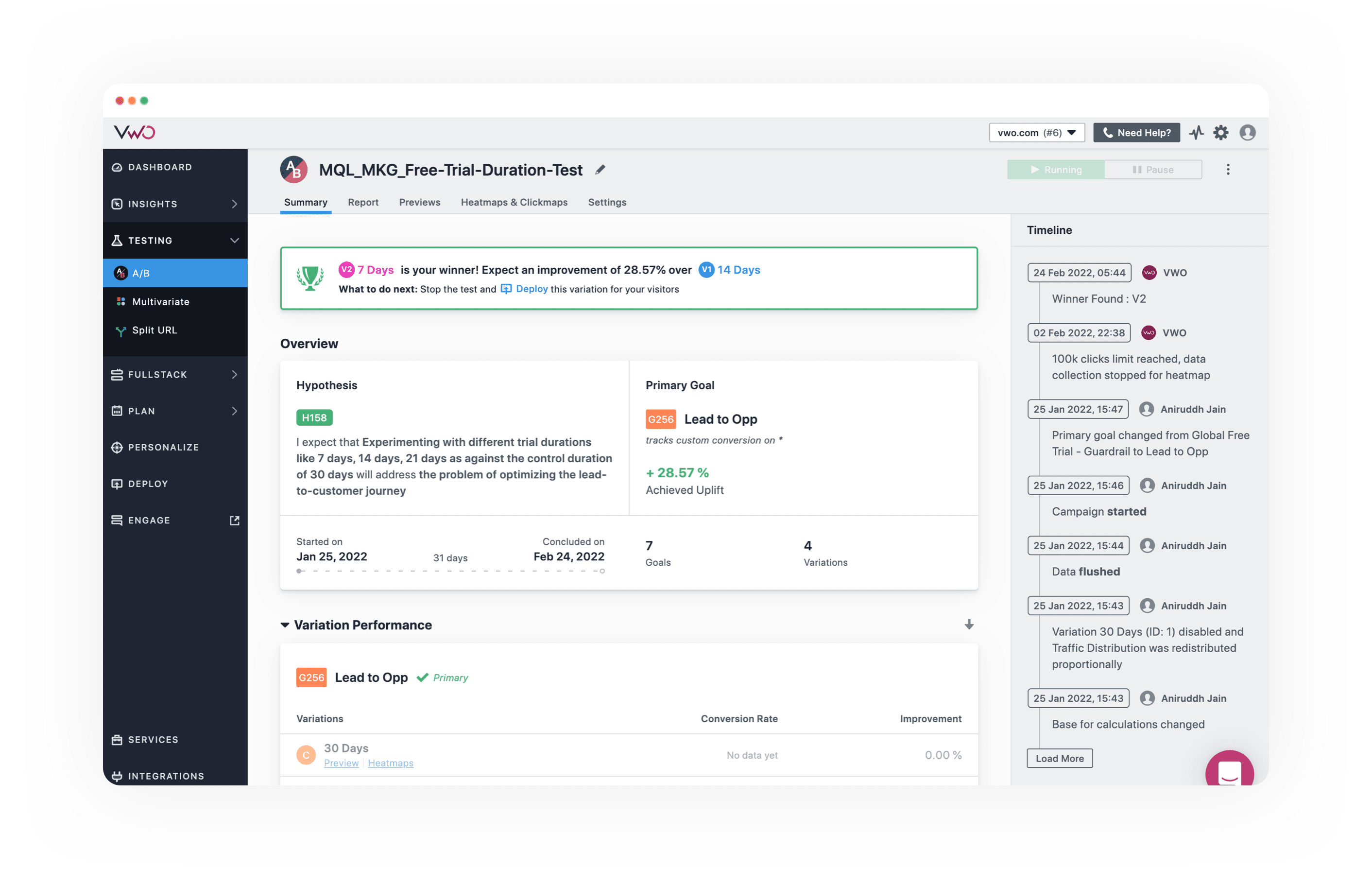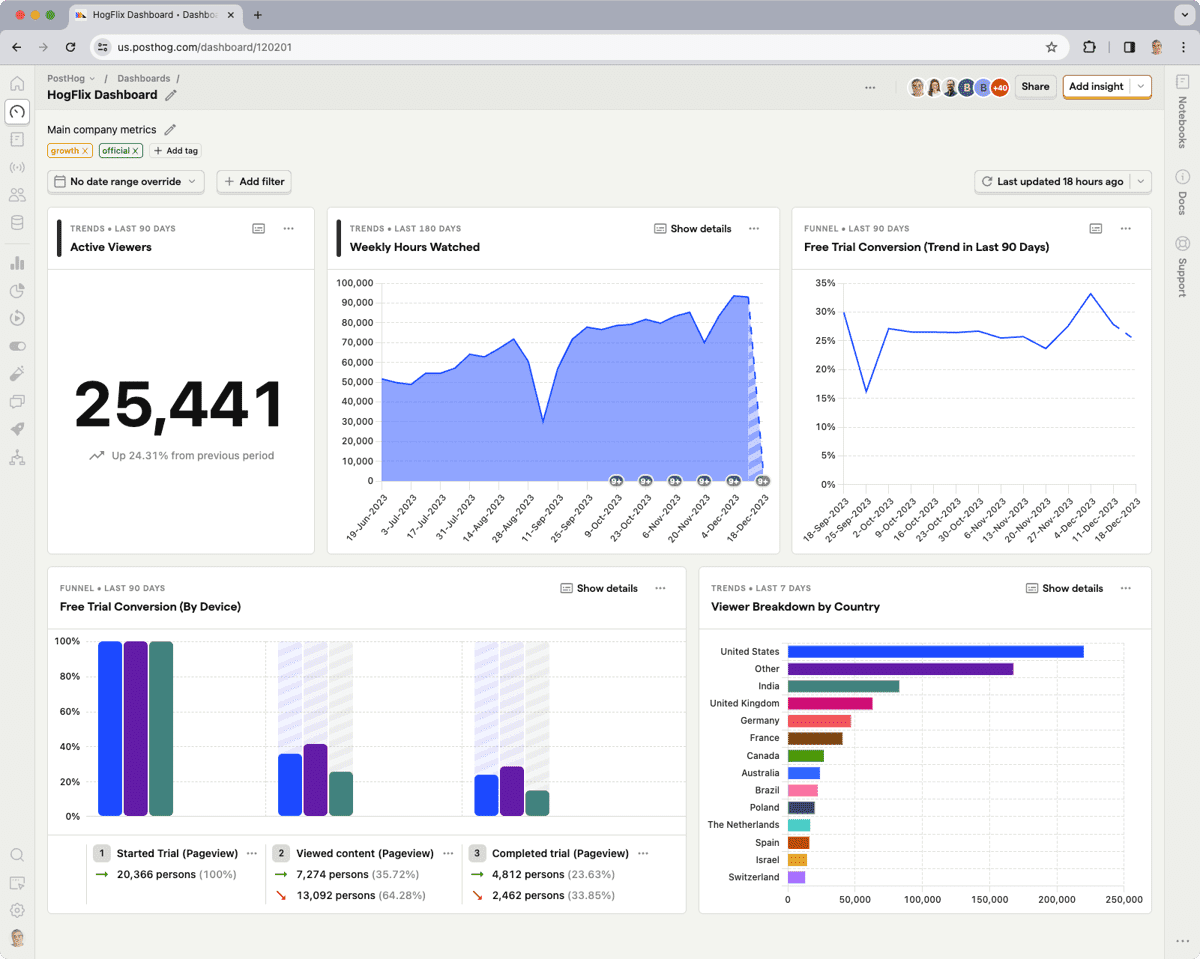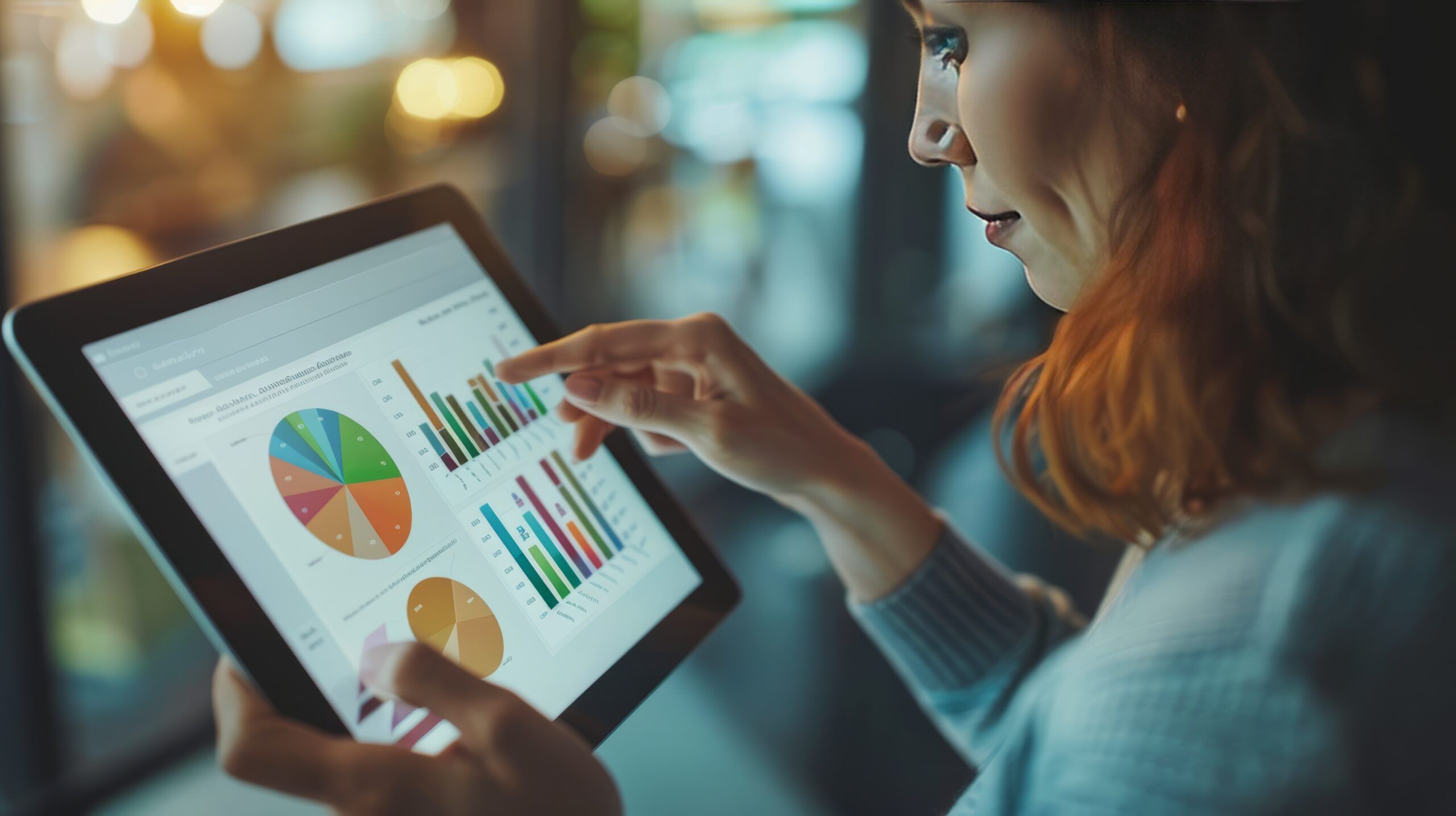Are you looking to optimize your website's performance but unsure if VWO is the right choice? You're in luck! We've compiled...
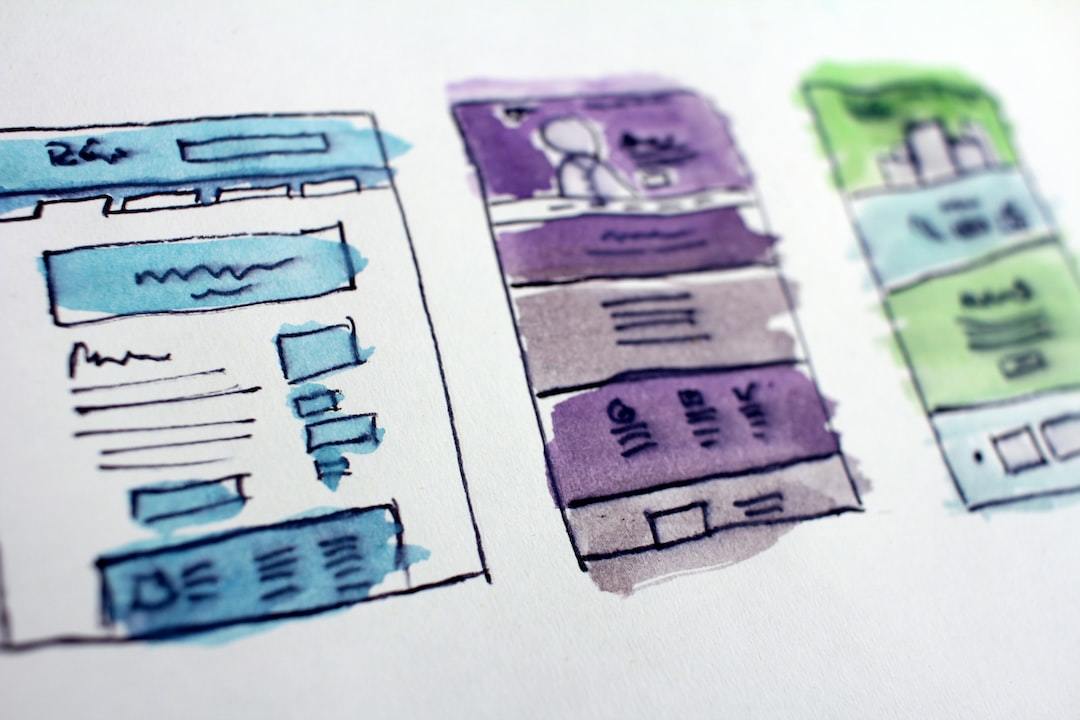
5 Steps To Optimize Your Customer Acquisition Funnel
The customer acquisition funnel is the process from a customer landing on your website until the moment they sign up. Analyze each funnel stage to understand why users drop off, or why they finish their way through the funnel. The more catered your funnel is, the more sign ups or calls booked you will drive.
In this article, we will deep dive into what the customer acquisition funnel is, and how to optimize it.
1. What is the customer acquisition funnel
2. The 4 stages of the customer acquisition funnel
3. How to optimize your customer acquisition funnel
4. 6 quick tips to optimize your funnel
What is the customer acquisition funnel?
The customer acquisition funnel, also known as a conversion or sales funnels, isn't just some fancy business jargon. It's the journey any visitor on your site takes from the first moment up until a sign up.
You might be wondering - why 'funnel'? As potential leads enter the top of the funnel, only a select few will make it to the bottom and convert into customers. This process mimics an actual physical funnel, hence the name.
A Deeper Dive Into The Funnel
Customer acquisition funnels start when someone learns about your brand for the first time – they've entered the top of your customer acquisition funnel. At this stage, they're simply gathering information and exploring what you have to offer without any commitment.
As these individuals move further down through each layer of your marketing efforts they transition from being casual browsers to interested leads who are considering purchasing from you.
The 4 Stages of the Customer Acquisition Funnel
Understanding your customer acquisition funnel is important. It's made up of four key stages: Awareness, Interest, Decision, and Action.
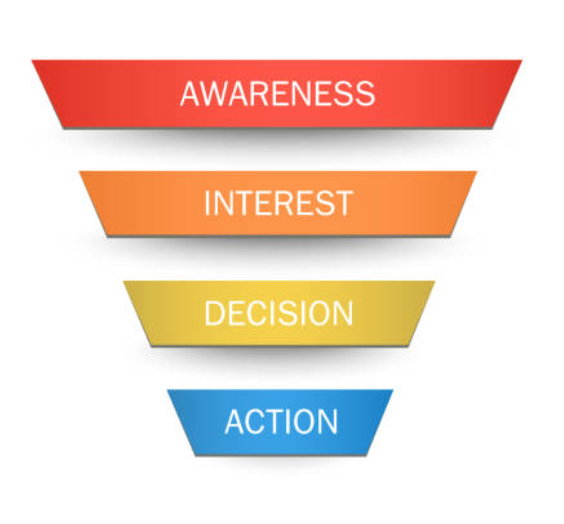
Awareness
This is where potential customers first discover your brand or product, called brand awareness. An effective customer acquisition strategy that appeals to your ideal audience is crucial to the success of your funnel.
Digital marketing acquisition channels such as SEO optimization, social media advertising, content marketing, and email campaigns can all help raise awareness in an engaging way that piques interest.
Interest
At this stage, individuals delve deeper into your offerings after through your website.
User experience design best practices suggest offering value upfront with free resources or trial offers – something tangible that helps prospects see firsthand how much your solution will help them.
Decision
This crucial stage is when prospects weigh their options before deciding whether or not they'll become customers. The information available should make it easy for them compare features, benefits - basically everything relevant related their decision-making process.
This is the middle of funnel. The stage where you have peaked interest in your actively buying market, and now is when they want to decide if they choose you or your competitor.
Action
The final stage of the funnel represents when a prospect becomes a customer - they've taken action. Whether they've booked a sales call, signed up for your software, requested a quote, etc.
This is the stage where you calculate conversion rate. Conversion rate is the percentage of how many qualified potential customers convert and take action. You can tell how many of your potential customers are qualified in the "Decision" stage only.
This is also where you calculate your customer acquisition costs. Which is the total cost per customer acquisition channel it takes for 1 prospect to become a customer through the entire sales funnel. These two data points, once calculated, allow you to optimize your customer acquisition strategy.
For example, a potential customer might be interested in the "Interest" stage of the customer journey, but not know that they are not a qualified customer (in your target audience). Conversion rate also helps you shift your customer acquisition strategy, which is ironically all the way in stage one.
What you can control in optimizing your funnel
To optimize customer acquisition funnels and lower your customer acquisition costs, you need to actively manage and control the key factors that directly influence the customers experience on the journey.
Data Analysis
You can leverage data analysis tools to gain insights into how customers interact with your website or app to achieve your business goals. These observations help make informed decisions for improvements. Here is a curated list of the top website optimization tools that involve data analysis.
Analyzing metrics such as bounce rates, time spent on each page, and user flow patterns let you understand where potential customers may be dropping off from the acquisition process.
User Experience (UX)
The next aspect is enhancing UX design based on collected data. A smooth user experience makes sure visitors don’t leave midway due to frustrations stemming from poor site navigation or unappealing content.
Running a frequest UX audit is vital. Here is an in-depth guide on how to run a UX audit.
A/B testing various design elements and tracking visitor interactions using heatmap software will give insights into what works best for engaging visitors effectively throughout their journey within the funnel stages.
How to Optimize Your Customer Acquisition Funnel
Running a funnel analysis frequently is important for your business, let's look at the optimization strategies that can turn prospects into loyal customers.
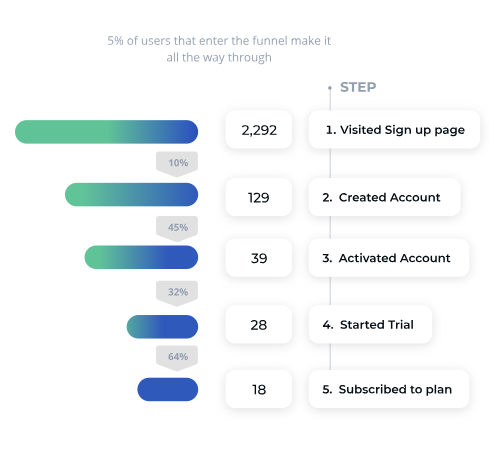
The Role of Heatmaps in Funnel Optimization
Heatmap tools are becoming a necessity nowadays for optimizing your acquisition funnel. They give a visual representation of user activity on your site - where they click or don't and what parts get more attention.
This data offers a chance to identify and address obstacles swiftly. It also gives insights into which elements need improvement for better conversion rates.
Types of heatmaps
Click Maps
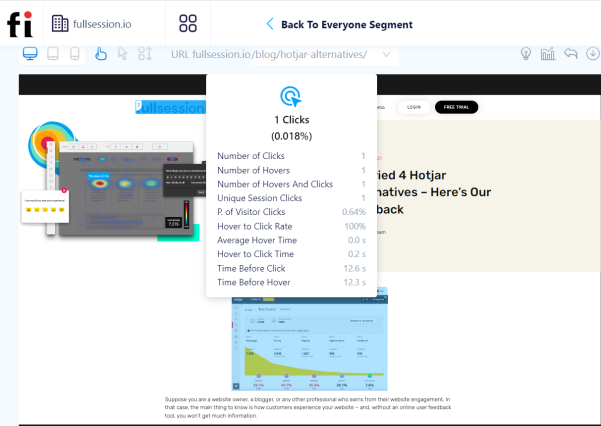
Mouse Movement Maps
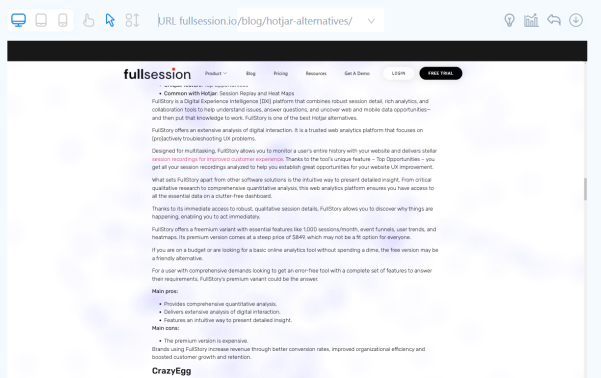
Scroll Maps
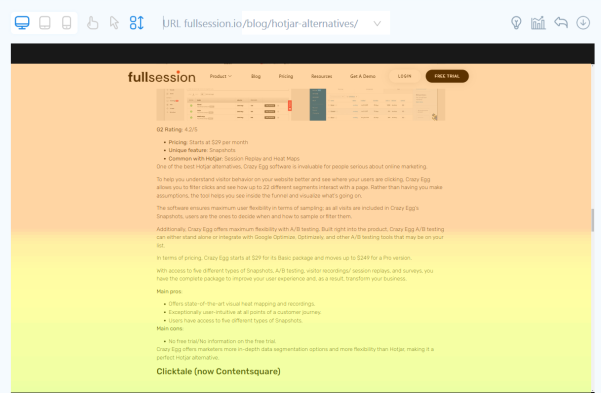
Data that heatmaps offer
- Preview the heatmap on different devices
- See the number of total views and total clicks
- Track error clicks
- Track rage clicks
- Track dead clicks
- See the average load time on page
Session Recordings
Apart from heatmaps, session recording software lets you watch recordings of real users interacting with your website. This is like viewing the journey through their eyes.
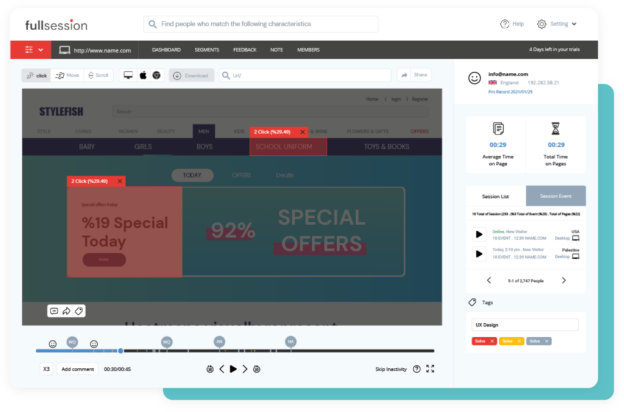
You'll see firsthand where visitors drop off and why some pages have lower engagement levels than others. With this information, you can make necessary adjustments that keep users moving smoothly down the funnel towards conversion.
Customer feedback
Customer feedback directly on your site has become a cheat code that only some businesses are using. If you've ever wondered how the big players in your industry are putting out product updates or offers that your customers just love?
Well they aren't getting their info from just anywhere, it comes through mass customer feedback.
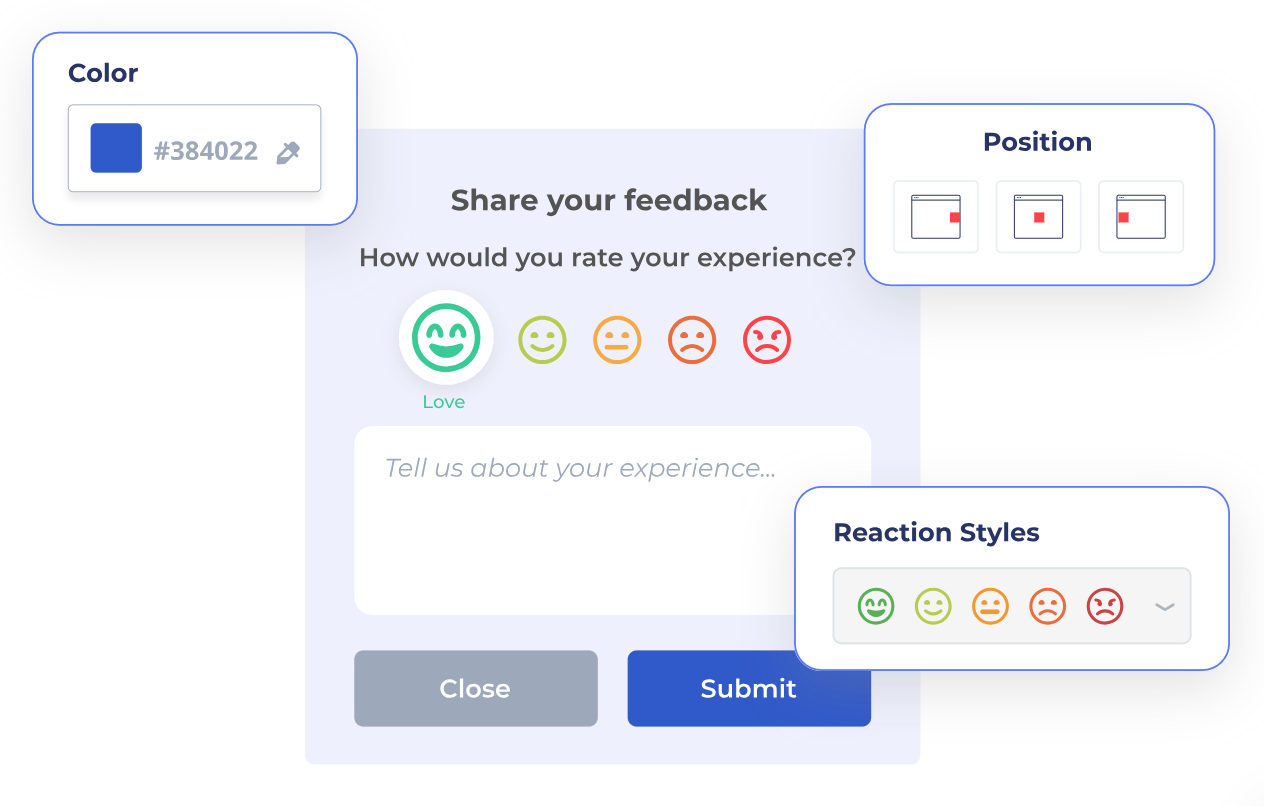
Fullsession has made it possible to get mass customer feedback, without spending months, or millions on acquisition. Fullsession has productized the ability. to get valuable customer feedback, and is rolling out features around curated AI integrations about your feedback if you have mass amounts of visitors. Here is a guide into customer feedback.
FullSession Pricing Plans
Fullsession offers everything you need to optimize your funnel. UX audits, session recording, heatmaps, customer feedback and funnel tracking and insights.
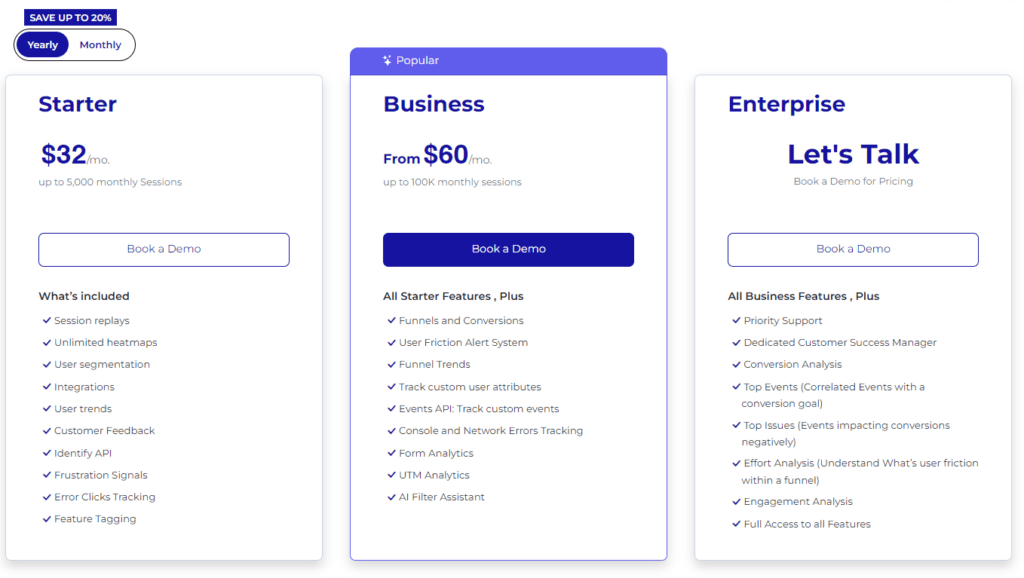
Here are more details on each plan.
- The Starter plan costs $39/month or $32/year and allows you to monitor up to 5,000 monthly sessions with up to 6 months of data storage.
- The Business plan costs $75/month or $60/year and helps you to track and analyze up to 100,000 monthly sessions with up to 12 months of data storage.
- The Enterprise plan has custom pricing and offers customizable sessions plus full access to all features.
6 Quick Tips on Optimizing a Funnel
The customer acquisition funnel is like a well-oiled machine. To ensure optimal functioning, regular upkeep of the customer acquisition funnel is essential. Here are 15 tips to keep your funnel running smoothly.
1. Understand Your Audience
Run frequent UX audits and feedback campaigns. When. we say frequent, we mean the more you do these, the more customers you get.
2. Create Engaging Content
The content on your marketing, service or product pages should answer the questions that potential customers have about your product or service. Make sure it's informative, engaging, and easy-to-read.
3. Use Effective Call-To-Actions (CTAs)
Make your CTA's direct and concise. Saying "learn more here" is weak. Saying "speak to our team to learn more about our service" will convert much better.
4. Ensure Mobile Responsiveness
Guarantee that the whole marketing process functions effortlessly across every device and page size.
5. Frequent A/B Testing
This allows you to compare different versions of an element within the sales pipeline so as not to rely solely on assumptions but hard facts.
6. Offer Live Chat Support
Having live chat support can significantly improve customer experience, leading to higher conversions and customer retention.
FAQs in Relation to Customer Acquisition Funnel
What is the customer acquisition funnel?
The customer acquisition funnel maps a buyer's journey from awareness to purchase. It helps businesses understand and optimize this path for higher conversion rates.
What is a customer purchase funnel?
A customer purchase funnel, like an acquisition one, traces a consumer's route from discovering your brand to buying your product. The focus here though is on nudging potential buyers into making that final leap.
What are the three components of the customer acquisition funnel?
The core parts of any solid acquisition funnel include: Awareness (grabbing attention), Consideration (engaging interest) and Conversion (turning prospects into paying customers).
What are the stages of the acquisition funnel?
The main stages in most funnels cover Awareness, Interest, Decision-making, and Action - often dubbed AIDA for short. Each phase requires different strategies to guide leads further down towards becoming loyal customers.
